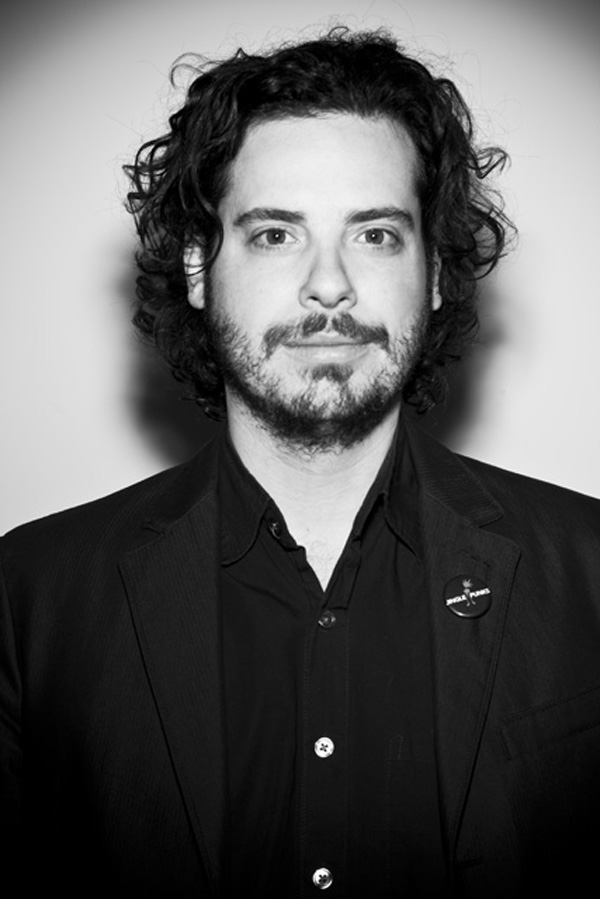All the latest guitar news, interviews, lessons, reviews, deals and more, direct to your inbox!
You are now subscribed
Your newsletter sign-up was successful

You may not have heard of Jared Gutstadt, but you've almost certainly heard his music.
He's written an award-winning song for the hit TV show Pawn Stars, as well as music for the film and video game industries.
Gutstadt is also the CEO and founder of the music licensing company Jingle Punks, which he describes as “a matchmaking service between bands and media companies. I just believed there was a better way of sourcing production music out there, something that wasn't the cheesy pop music people were so accustomed to in the past. I wanted to source real bands and real artists, and just aggregate it.”
We caught up with Gutstadt while he was in LA setting up the new Jingle Punks studio to get the word from the man behind so much music it makes your ears ring.
GUITAR WORLD: Where are some places your music has appeared that most people would readily recognize?
The thing that put our company on the map and that I'm most recognized for is the Pawn Stars theme song. I think it's the most widely watched show of all time. The power chords at the top of that [duh nuh nuh nuh!] -- I made that in about 20 minutes in my studio as part of a whole batch of pitches I was working on at the time. It went on last year to win the ASCAP award for the most played song on all of cable television. That has been far and away the song that follows us the most.What was the experience of winning an ASCAP award?I didn't get into this business to win awards. Rock 'n' roll and punk rock are very much things that are looked upon as things you don't win awards for. I was sort of at the misfit table where I was sitting with members of Velvet Revolver and all these other people. It was the film and TV awards so our contemporaries were Trent Reznor, Hanz Zimmer and Angelo Badalamenti. For us to be sitting there, a bunch of rock 'n' roll guys in the same room as them, it was very surreal for me. Being able to actually take home a prize is not why I got into this in the first place but it definitely felt cool [laughs].Where you writing that song specifically for the show?Yeah, I was working for the History Channel and it was just supposed to be for the promo. They wanted this Americana, rootsy, rock 'n' roll vibe so I literally just dug up some really muscly chords and laid down a lead line on it. It just sort of came out and the show producers heard it and said they wanted it to be their theme song. From there it's lead to us working on 150 shows since. It's been an exciting run and it's led to us bringing back guitar based music within the production space.Is bringing that guitar based production back to the forefront a point of pride for you?Yeah 100 percent because if you look at the TV landscape and what it was last year. Shows like Survivor or The Amazing Race, those songs are heavily orchestral based but my background in rock 'n' roll. I came from playing in rock and country bands my whole life and that's the language I speak really well. For American Pickers, our creative brief on that was they wanted it to sound like The Band meets The White Stripes meets seventies-era Rolling Stones. No matter how far it gets into the electronic side of the music business, which it's pretty entrenched in, my first love is always picking up a stringed instrument.How does it feel to be a mostly anonymous when your music is played? Is it sometimes frustrating or do you prefer being 'the man behind the curtain'?At this point in my career, I'm just as happy to be the man behind the curtain, but it's sort of a double edged sword; we've marketed ourselves so strongly within the indie rock community that when I go to conferences or shows I don't necessarily get recognized for the songs I've made, I get recognized as someone who can create opportunities for bands. When I go to CMJ or South by Southwest I'll literally come home with garbage bags of indie rock CDs. It's my duty to make sure all that stuff gets listened to and processed. That's become one of the things that I feel really strongly about. I'm trying to create all these opportunities that no one gave to me on my way up. I think sometimes a lot of people look at the advertising business as sort of a negative thing. How has running a music licensing business shaped or changed your view of music?It's kind of amazing because when I was starting out I always thought the bands I looked up to would never consider licensing their music, but the people we've worked with along the way -– whether it's members of MGMT, songwriters who've written for Rihanna or Christina Aguilera, members of Guns 'N Roses, or even Brett Michaels -– show that the game has changed and record sales aren't what they used to be. Really people are looking for all sort of ancillary income to support them. It's amazing how creative people are getting where the stigma that used to be attached to advertising is gone whether it's Bob Dylan doing Victoria's Secret ads or Jack White doing Coca Cola ads. Everyone's in this business right now and it's really cool to be at the epicenter of it.The video below -- and above -- features Gutstadt performing with the Jingle Punks Hipster Orchestra. Their album comes out September 27 on iTunes and MTV:
All the latest guitar news, interviews, lessons, reviews, deals and more, direct to your inbox!
